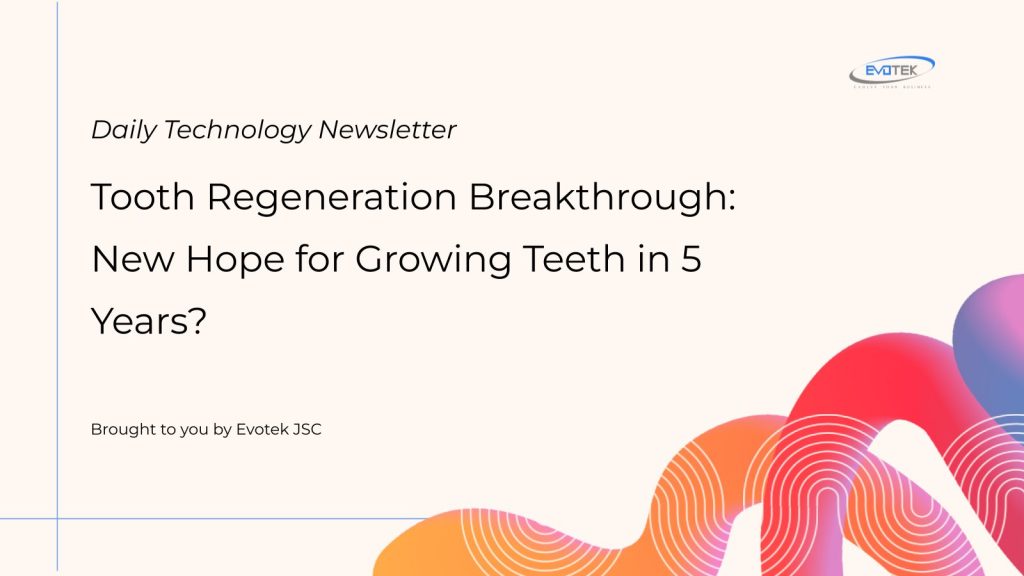For millions suffering from tooth loss, a dental revolution may be on the horizon. Japanese scientists are pioneering a groundbreaking medicine aimed at regrowing human teeth, with human trials already underway.
Unlike bones, which possess the remarkable ability to regenerate after fractures, teeth lack this crucial self-healing mechanism. This limitation leads to widespread toothlessness (edentulism) and its associated health and social challenges. However, this could soon change.
Katsu Takahashi, head of dentistry at Kitano Hospital’s medical research institute in Osaka, emphasized the importance of this research, stating, “We want to do something to help those who are suffering from tooth loss or absence.” He added, “While there has been no treatment to date providing a permanent cure, we feel that people’s expectations for tooth growth are high.”
The research focuses on an antibody called Uterine sensitization–associated gene-1 (USAG-1). Studies have shown that suppressing USAG-1 promotes tooth growth in animals. In 2021, Kyoto University scientists identified a monoclonal antibody that effectively disrupts the interaction between USAG-1 and bone morphogenetic protein (BMP), a key regulator of bone and tooth development.
“We knew that suppressing USAG-1 benefits tooth growth. What we did not know was whether it would be enough,” explained Kyoto University’s Katsu Takahashi, a co-author of the initial study.
The current human trial involves 30 men aged 30 to 64, each missing at least one tooth. The 11-month study aims to assess the drug’s safety and effectiveness through intravenous administration. Encouragingly, previous animal studies have not reported any significant side effects.
If the initial trial proves successful, researchers plan to expand the treatment to children aged 2 to 7 with congenital tooth deficiencies. The ultimate goal is to make tooth-regrowing medicine widely available by 2030, potentially transforming dental care for individuals with various forms of tooth loss.
While the initial focus is on congenital tooth deficiency, Takahashi envisions a future where this treatment benefits anyone who has lost a tooth, offering a permanent and natural solution to a common problem. This breakthrough could revolutionize dentistry and bring smiles back to millions.

 日本語
日本語 한국어
한국어 Tiếng Việt
Tiếng Việt 简体中文
简体中文